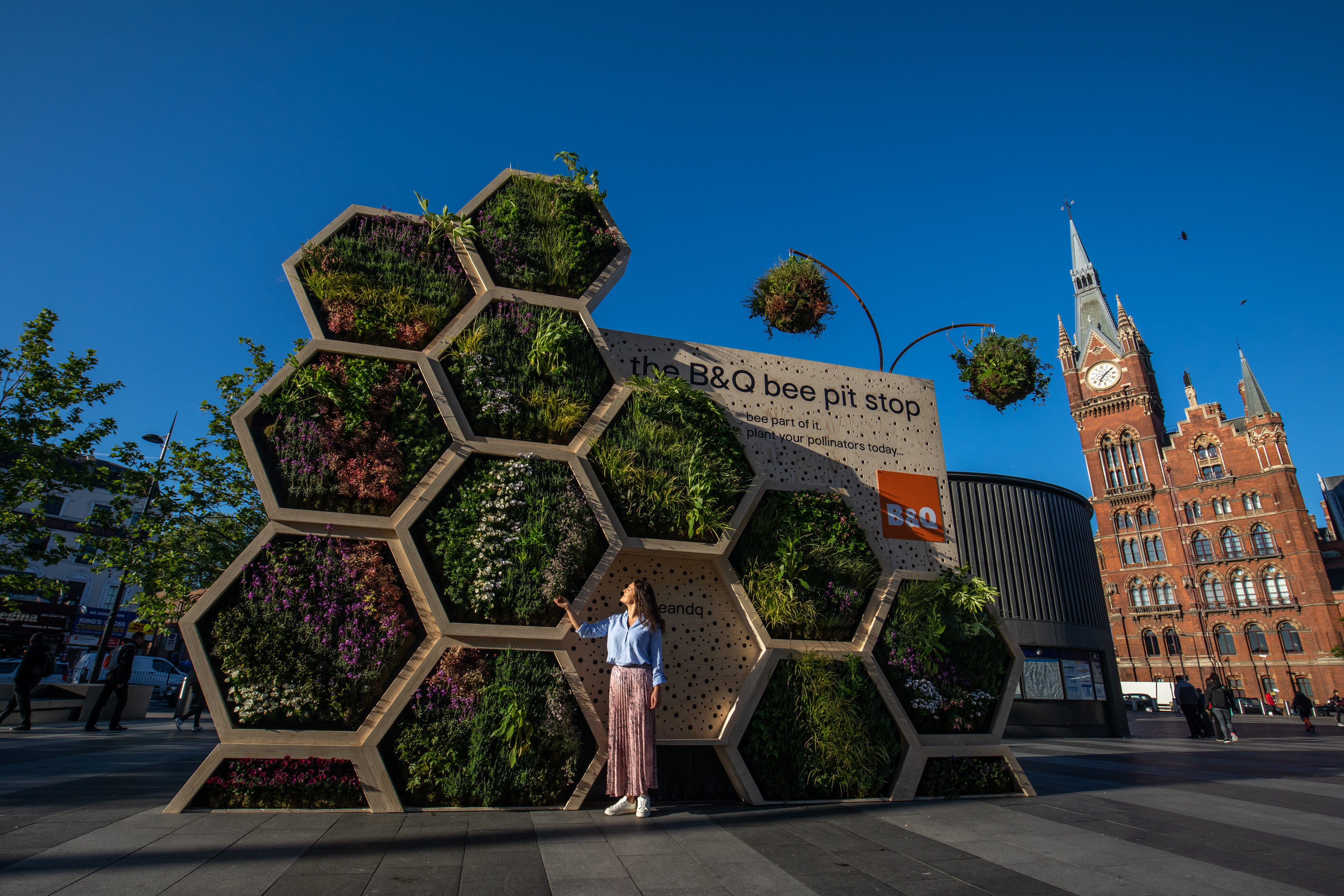Huge Bee Pit Stop to encourage bee conservation unveiled in London
B&Q installs huge 'bee pit stop' at London's Kings Cross to encourage people to build their own at home

B&Q have unveiled a massive 'Bee Pit Stop' installation at London's Kings Cross, created in collaboration with award-winning garden designer Matt Childs. The beehive-shaped artwork is 36m tall and doubles up as a flower-packed safe space for London's bees. It contains 500 plugs of lavender, as well as other bee-friendly plant species, such as salvia and spurges.
The idea behind the installation is to encourage people across the country to plant their own 'bee pit stops'. While eight in 10 of us now know that bees are in trouble, only about half of us know how to actually help the bees. A bee pit stop can be as small as a window box planted with lavender, or it can be a whole bee-friendly garden. No effort is too small given the woeful state of our key pollinators.
- Find out how to create a bee-friendly garden
'The livelihood of bees is intrinsically tied to ours so it’s incredibly important that
we do our part to save the bees – the consequences are dire if we don’t act,' comments Steve Guy, outdoor market director at B&Q.
'We know that UK gardeners are increasingly eco-conscious and want to create outdoor spaces that are kind to nature and wildlife, but it’s imperative Britain takes action, and there is still more we can all do to make our gardens a haven for bees. Whether you’re planting a pot of lavender on your urban balcony, or a dedicated pollinator bed in your garden, it’s a lot easier than many think to create a "bee pit
stop" so we want as many people to get involved as possible.'
A spokesperson from Greenpeace adds, 'Bees, together with bugs, are important and essential pollinators. Four out of every 10 forkfuls of food off your plate are down to the bees. It’s vital that we do everything possible to encourage and protect them. Not only are they at risk from powerful and unnecessary pesticides they also suffer from pests and parasites capable of decimating their hives. Greenpeace agrees that the benefits of planting nectar rich wildflowers and encouraging bees into your lives will make a real difference and help to build back those lost colonies and make you happy.'
Inspired to create your own bee garden? Plant some of our best wildflower seed mixes.
Get small space home decor ideas, celeb inspiration, DIY tips and more, straight to your inbox!
Anna is a professional writer with many years of experience. She has a passion for contemporary home decor and gardening. She covers a range of topics, from practical advice to interior and garden design.